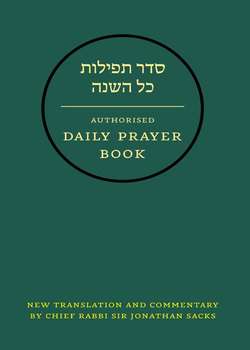Читать книгу Hebrew Daily Prayer Book - Jonathan Sacks - Страница 28
KEYWORDS OF PRAYER The names of GOD
ОглавлениеThe two key names, in prayer as in the Torah, are 1. the Tetragrammaton, , the “four letter” name, and 2. Elohim. They are different in meaning and tone. The Sages understood the Tetragrammaton as GOD’S compassion. Elohim is GOD’S attribute of justice.
Judah Halevi (Kuzari, IV:1) made a more fundamental distinction. The ancients used the word El or Eloah to designate a force of nature: the sun, the sea, the storm, and so on. These they personified as gods. Often, therefore, el, or elil, denotes an idol. In Hebrew, monotheism’s mother tongue, Elohim in the plural means “the One who is the totality of powers, forces and causes in the universe” It refers to GOD as we experience Him in creation and its natural laws, as well as in justice and its moral laws (it sometimes also has a secular sense, meaning those who hold positions of power, usually judges).
The Tetragrammaton not only has a different meaning, it is also a word of a different grammatical type. It is GOD’S proper name, standing in relation to Him as the names Abraham or Sarah attach to human beings (hence it is sometimes referred to as Hashem, “the name”). The use of a proper name in connection with GOD means that a direct relationship between us and heaven is possible. We can speak to GOD, and He listens. There is a direct connection between the Tetragrammaton and the word “You”. Only a being that has a proper name can we address as “You”. Hence, in prayer, “You” is always directed to the Tetragrammaton; Elohim goes with the third-person, “He”. Thus Elohim signifies GoD-as-law, natural or moral. The Tetragrammaton refers to GOD as we encounter Him in intimacy, compassion and love.
Though I have followed convention, rendering the Tetragrammaton as “Lord” it should be remembered that “Lord” is not a translation but a substitution. So holy was the Divine name that it was used only in the Temple. In all other contexts, it was (and still is) pronounced as Adonai, which means “my LORD.”
The use of the word Eloheinu, “Our GOD” signifies our acceptance of GOD as sole object of our worship. Formal acknowledgement of this fact – in the first line of the Shema – is a pledge of loyalty and service, called by the Sages, “Acceptance of the yoke of Divine kingship”.
The word “King” when applied to GOD means, first, that GOD is the sole ultimate Sovereign of the people Israel, who accepted His kingship and covenant at Mount Sinai. At that ceremony, GOD undertook to guide the Israelites’ destiny, while the people accepted their vocation as “a kingdom of priests and a holy nation”, bound by GOD’S laws. The second and wider meaning is that GOD is Sovereign over the universe and all humanity – with whom, via Noah, He made a covenant after the Flood (Genesis 9). That covenant, with its seven laws, embodies the fundamental principles of human conduct under GOD. Though GOD’S sovereignty is not yet recognised by all, it will be in the end of days. Hence our prayers often end with the prophecy of Zechariah (14:9), “Then the LORD shall be King over all the earth” The sovereignty of GOD is the ultimate sanction against tyranny. It implies that all human authority is delegated authority, to be exercised only within the constraints of the covenant.
Sometimes GOD is referred to as which, though I have followed convention by translating it as “Creator”, literally means “Owner” of heaven and earth. This represents the idea that because GOD created the universe, He owns it. The world and its benefits do not belong to us. What we possess, we hold in trust from GOD. This is the legal basis of Divine sovereignty of the universe – similar to the ancient concept of “eminent domain” by which all ownership of land within a country is ultimately vested in its head of state. As Sovereign of the universe, GOD rules by right, not power.
